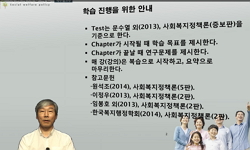본 연구는 인간의 행복을 결정하는 요인은 무엇인지 규명하는 것으로부터 출발하였다. 본 연구의 목적은 주관적 웰빙의 설명변수를 상·하향확산 이론에 근거하여 내적요인과 외적요인을 ...
http://chineseinput.net/에서 pinyin(병음)방식으로 중국어를 변환할 수 있습니다.
변환된 중국어를 복사하여 사용하시면 됩니다.
- 中文 을 입력하시려면 zhongwen을 입력하시고 space를누르시면됩니다.
- 北京 을 입력하시려면 beijing을 입력하시고 space를 누르시면 됩니다.

노년기 세대의 내·외적 요인이 주관적 웰빙에 미치는 영향 : 상-하향 확산이론을 중심으로 = The Impact of Internal and External Factors on the Subjective Well-being of the Elderly : Focusing on Spillover Theory
한글로보기https://www.riss.kr/link?id=A109243057
- 저자
- 발행기관
- 학술지명
- 권호사항
-
발행연도
2024
-
작성언어
Korean
- 주제어
-
등재정보
KCI등재
-
자료형태
학술저널
-
수록면
67-92(26쪽)
- DOI식별코드
- 제공처
-
0
상세조회 -
0
다운로드
부가정보
국문 초록 (Abstract)
본 연구는 인간의 행복을 결정하는 요인은 무엇인지 규명하는 것으로부터 출발하였다. 본 연구의 목적은 주관적 웰빙의 설명변수를 상·하향확산 이론에 근거하여 내적요인과 외적요인을 도출하고, 각 변수들이 주관적 웰빙에 미치는 영향요인을 확인하는 것이다. 분석자료는 사회통합실태조사(2021)를 사용하여 19세이상 성인을 대상으로 연구집단(60세 이상)과 대조집단(19세~59세)으로 구분하고 분산분석과 사후분석 그리고 회귀분석을 실시하였다.
분석결과 연령집단에 따라 주관적 웰빙에 영향을 미치는 변인 간에 차이가 존재하며 특히, 60세 이상 연령층에 있어서 소득수준과 주관적 웰빙 간에는 연관성은 있지만 절대적이라고는 할 수 없었다. 두 집단의 주관적 웰빙의 공통영향 요인은 사회적 지위 인식과 주관적 건강 만족도가 정(+)의 영향, 남성, 신경과민성, 고립감은 부(-)의 영향요인으로 작용하였으며, 차별영향 요인은 사적 사회적 참여와, 자가거주, 유배우자가 60세 이상 연구집단에만 정(+)의 영향요인으로 작용하었고, 대조집단에는 경제적 안정성이 정(+)의 영향, 공적 사회참여가 부(-)의 영향요인으로 작용되었다. 이에 따라 노년기를 대상으로 주관적 웰빙의 긍정요인을 확대하고 부정요인을 줄여줄 수 있는 정책적 지원이 마련되어야 할 것이다.
다국어 초록 (Multilingual Abstract)
This study began with the investigation of the factors that determine human happiness. The purpose of this study is to identify internal and external factors of subjective well-being based on spillover theory and to examine the impact of each variable...
This study began with the investigation of the factors that determine human happiness. The purpose of this study is to identify internal and external factors of subjective well-being based on spillover theory and to examine the impact of each variable on subjective well-being. The analysis used data from the “2021 Social Integration Survey”, targeting adults aged 19 and older, and divided the subjects into a study group (60 years and older) and a control group (19-59 years). Analysis of variance (ANOVA), post-hoc analysis, and regression analysis were conducted."The results of analysis showed that the factors influencing subjective well-being differ by age group. For those aged 60 and over, while there is a correlation between income level and subjective well-being, it is not absolute. Common factors affecting subjective well-being in both groups include positive impacts from perceived social status and subjective health satisfaction, and negative impacts from being male, neuroticism, and feelings of isolation. Unique factors for the 60 and over group include positive impacts from private social participation, home ownership, and having a spouse. For the younger group, economic stability had a positive impact, and public social participation had a negative impact. Therefore, policies should be developed to enhance positive factors and reduce negative factors for subjective well-being in the elderly."
동일학술지(권/호) 다른 논문
-
- 충북연구원
- 김규혁
- 2024
- KCI등재
-
한국 의료보장제도의 효과 : 산재노동자의 일상 복귀 분석을 중심으로
- 충북연구원
- 김해인
- 2024
- KCI등재
-
환경오염물질 배출 개별입지 공장의 공간분포 특성 분석 : 충청남도를 중심으로
- 충북연구원
- 송학주
- 2024
- KCI등재
-
- 충북연구원
- 임형백
- 2024
- KCI등재




 KCI
KCI


